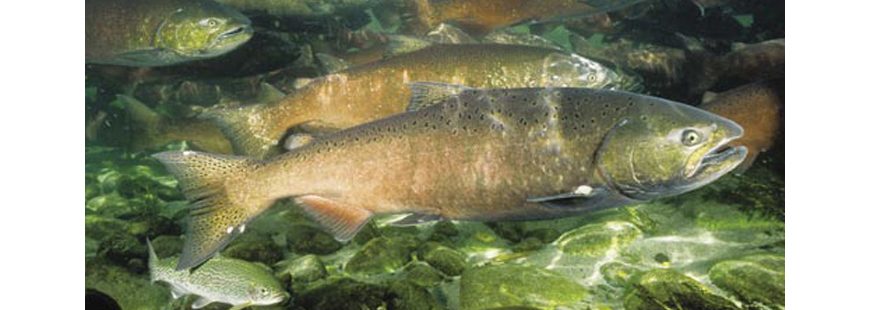Among the first things I learned about fisheries management is that fish moving across jurisdictional boundaries present a challenge. Whether in rivers and streams, in the ocean, or migrating between the two, the arbitrary boundaries the U.S. has devised sometimes aren’t malleable enough to accommodate the lifecycle and behavior of fish species that cross between fresh and saltwater systems.
As a nation, we swiftly took care of that conundrum decades ago when the U.S. instituted many of its landmark environmental laws and policies, including the Endangered Species Act (ESA) and the Magnuson-Stevens Act of 1976. These landmark statutes charged NOAA Fisheries under the Department of Commerce with jurisdiction and authority over anadromous and catadromous fish. Those are the ones, respectively, that spawn in freshwater streams and spend their adult lives in the oceans and vice versa.
This system functions well. It allows the same agency that regulates ESA listed salmon, including winter run king salmon in California’s Central Valley, to seamlessly assess impacts that fishing for non-listed species like fall run kings might have.
It seems like a no-brainer that good governance would keep management of those critically linked stocks under the same roof.
But on October 3, 2017, Congressman Ken Calvert (R-CA-42) introduced H.R. 3916 and took action to change the established management arrangement for these fish. H.R. 3916, also called the Federally Integrated Species Health Act or FISH Act, seeks to transfer jurisdiction of ESA-listed anadromous and catadromous fish from NOAA to the Department of the Interior.
Why? There’s no obvious reason. But many who spend time in the trenches of the California water wars (including yours truly) believe it’s a veiled attempt to disrupt the commercial and recreational salmon fisheries.
We don’t take issue with the fact that either federal agency could have purview over anadromous and catadromous fish. However, NOAA has built up years of valuable experience, expertise, and connections with stakeholders. We believe the determination that was made years ago has largely been a success and should remain in place. Disruption of a functional process will undoubtedly cause delays in day-to-day administration and in management decision-making at a time when species and livelihoods that depend on those species cannot afford to lose another minute.
The FISH Act threatens West Coast fisheries in particular because Chinook salmon are in peril. Northern California salmon are facing unprecedented environmental changes that threaten the survival of the species. An iconic fishery that’s the lifeblood of the California fishing industry is on the brink of collapse and demands all resources be directed toward implementing solutions. Yet the FISH Act would distract from critical, time-sensitive progress and instead create a nightmare of bureaucratic reshuffling.
Not only would the FISH Act waste time and resources during this critical time for salmon, it would mean the loss of institutional knowledge and a wealth of relationships that have been cultivated for over 40 years. These relationships with tribes, NGOs, and industry should not be underestimated. In an embattled region where water is so precious and salmon are the core of economic and cultural values, longstanding working relationships are what generate trust, decision-making, and action.
Time is of the essence for endangered species, like winter run king salmon. The FISH act would generate a waste of time that we just don’t have.


